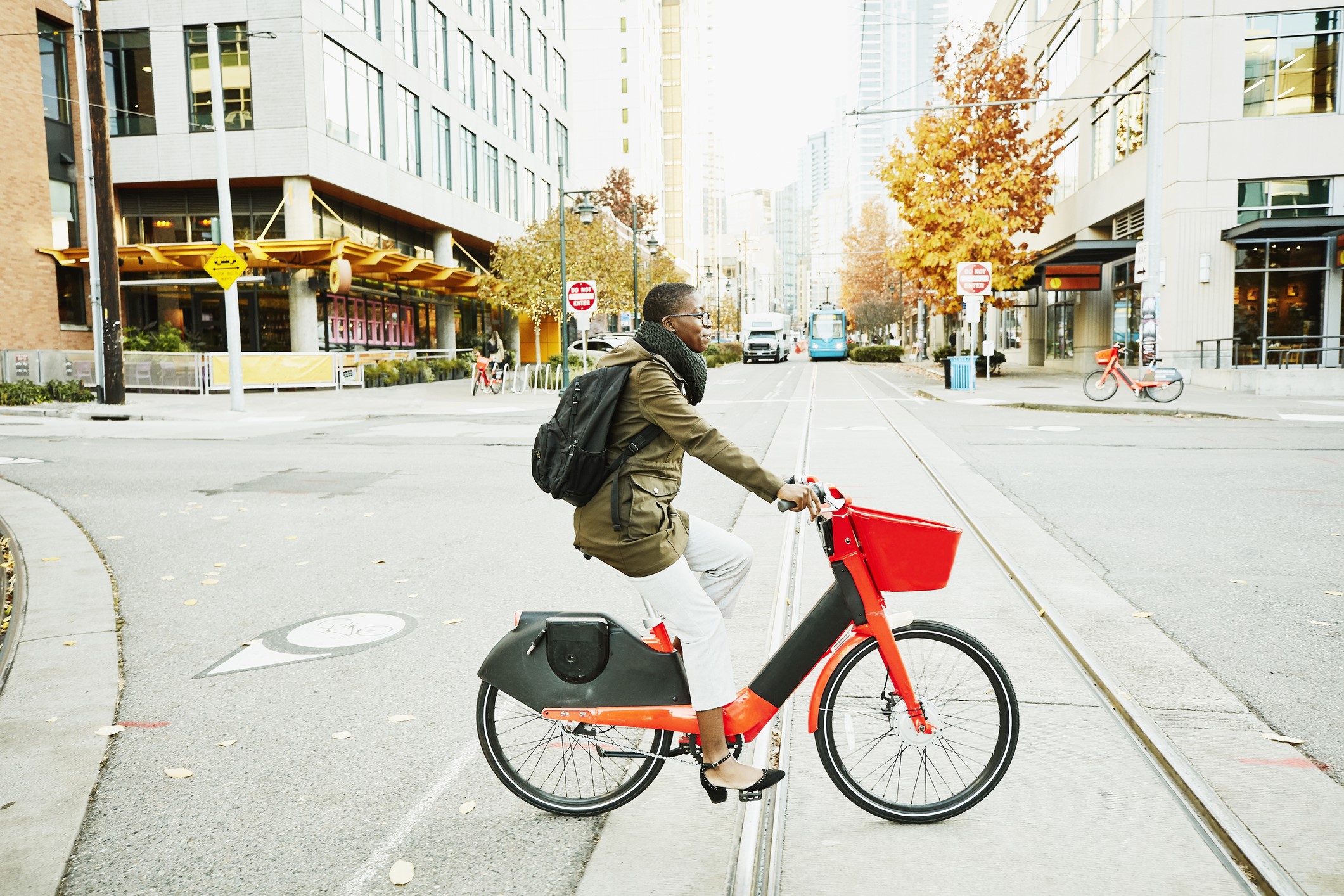Is Your Electric Bike Street Legal?
Electric bicycles or “e-bikes” are more popular than ever. As cyclists discover they can bike with less physical strain or venture on longer trips, the e-bike industry is booming. And with concerns about increasing gas prices and climate change, more people are using electric bicycles as alternative transportation for activities like commuting.
However, bicycle laws and regulations are trying to catch up to the surge of electric bicycle riders. As a result, there are inconsistent rules state by state and even within the same town.
What Is the Definition of an Electric Bicycle?
An electric bicycle is a standard bicycle equipped with a motor and/or throttle. The motor’s power assists the ease of pedaling (pedal-assist), and the throttle can propel the bike forward without pedaling.
On the federal level, the definition of an electric bicycle has three elements:
- The bicycle has two or three wheels and has operable pedals
- The electric motor is less than one horsepower (750 watts)
- The maximum speed is 20 mph
However, states have developed different classifications of electric-assisted bicycles and laws regarding those classifications.
What Are the Classes of Electric Bikes?
Generally, there are three classifications of e-bikes before being considered an “electric motorized vehicle,” such as a moped. States may have different regulations depending on if your e-bike is low-speed or a Class 1, 2, or 3.
- Class 1: Features pedal assistance. They do not have a throttle. The motor engages when you pedal. If you exceed a top speed of 20 mph, the motor stops.
- Class 2: Has a throttle in addition to pedal assistance. The motor engages when you pedal or use the throttle. If you exceed a top speed of 20 mph, the motor stops.
- Class 3: Does not have a throttle but a speed pedal assist, allowing you to go up to 28 mph.
- Class 4: Considered a motorized vehicle, such as an electric moped.
If a state classifies an electric bicycle as a motorized vehicle or motorcycle, the laws are more restrictive on where you can use them. So a bike path may not necessarily allow e-bike riders, only bikes operating under human power.
Where Am I Allowed To Ride My E-bike?
There are no federal laws on where you can ride your electric bike. Generally, an electric bicycle can ride on roadways and anywhere a regular bicycle can ride. However, cyclists must follow the rules of the road, such as riding on the right side of the road, stopping at red lights, and signaling turns.
States and local municipalities enact their own laws and ordinances for road use. For example, New York City permits class 1, 2, and 3 electric bicycles to use bike lanes and streets with a maximum posted speed limit of 30 mph. However, recently in Carlsbad, California, officials banned electric bicycles from sidewalks. There is even more controversy when riding on mixed-use roads, unpaved roads, and trails.
Traditional bikes may be permitted on bicycle paths where electric bikes or electric scooters are prohibited. And there are inconsistent rules for off-road biking with electric mountain bikes or dirt bikes on backcountry trails. Look for signs prohibiting e-bike use.
What Should I Know Before Buying an Electric Bike?
An electric bike is a significant investment with prices ranging from hundreds to thousands of dollars. So first, check the e-bike laws in your state before deciding what type of electric bike to buy.
- Do I need a license to operate the e-bike, such as an owner’s permit or driver’s license?
- Do I need to register my e-bike?
- Am I required to carry insurance?
- What are the classes of e-bikes? Are there specific prohibitions (i.e., maximum wattage of the motor)?
- Do I have to wear a helmet?
- Is there a minimum age to operate an e-bike?
- Where am I allowed to ride my e-bike (i.e., sidewalks, trails, parks)?
- Are there any specific state laws or local authority ordinances for electric motors?
What if I Am in an E-bike Accident?
Unfortunately, there are risks when riding a motorized bicycle, and injuries can be more severe than on traditional bicycles. If you are hit by a car or injured in an electric bicycle accident, get medical attention immediately and then seek advice from a personal injury attorney.
Even though you ride in public areas, you are responsible for any injuries to people you cause with your e-bike. And if you ride under the influence of drugs or alcohol, you may be subject to fines in your state.
Keep up to date on the e-bike vehicle codes and state law. As electric bicycles become mainstream, look for more consistent rules of the road.
You Don’t Have To Solve This on Your Own – Get a Lawyer’s Help
Meeting with a lawyer can help you understand your options and how to best protect your rights. Visit our attorney directory to find a lawyer near you who can help.






